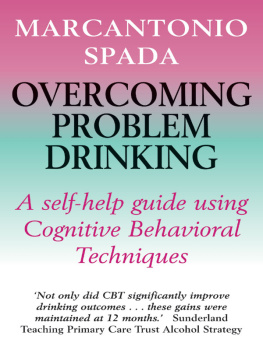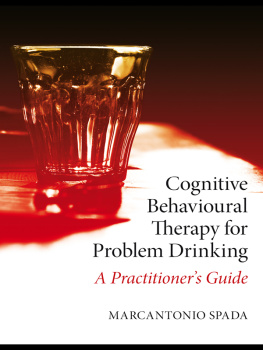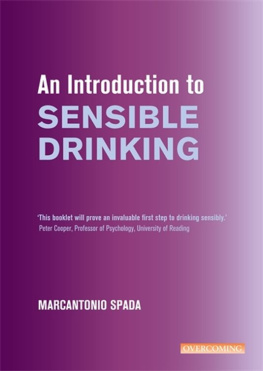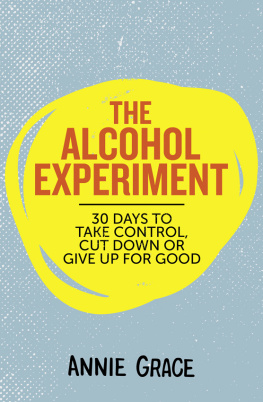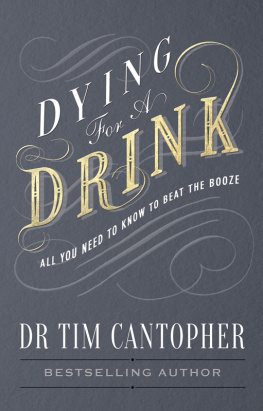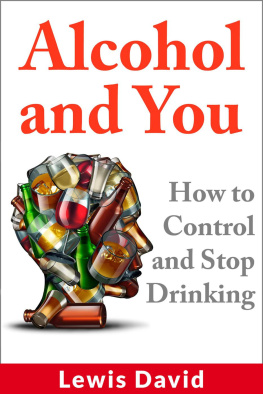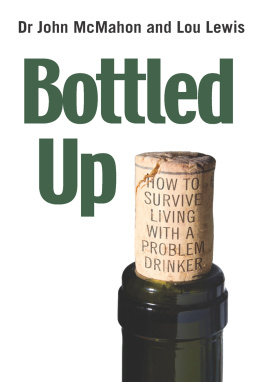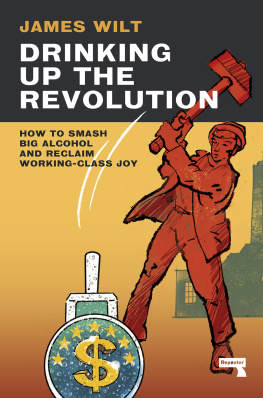Marcantonio Spada is Principal Lecturer in Psychology at Roehampton University and a consultant cognitive behavioral therapist with the Community Alcohol and Drugs Service of the London Borough of Brent. He was previously principal lecturer in psychology and course director of the MSc in Cognitive Behavior Therapy at London Metropolitan University. An expert in cognitive behavioral therapy and therapy of problem drinking, he has worked as a clinician for several years in both private practice and mental health organizations. Marcantonio is a chartered psychologist, an accredited cognitive behavior therapist, and a registered psychotherapist.
The aim of the Overcoming series is to enable people with a range of common problems and disorders to take control of their own recovery program. Each title, with its specially tailored program, is devised by a practicing clinician using the latest techniques of cognitive behavioral therapy techniques which have been shown to be highly effective in changing the way patients think about themselves and their problems. The series was initiated in 1993 by Peter Cooper, Professor of Psychology at Reading University and Research Fellow at the University of Cambridge in the UK whose original volume on overcoming bulimia nervosa and binge-eating continues to help many people in the USA, the UK and Europe.
Titles in the series include:
OVERCOMING ANGER AND IRRITABILITY
OVERCOMING ANOREXIA NERVOSA
OVERCOMING ANXIETY
OVERCOMING BODY IMAGE PROBLEMS
OVERCOMING BULIMIA NERVOSA AND BINGE-EATING
OVERCOMING CHILDHOOD TRAUMA
OVERCOMING CHRONIC FATIGUE
OVERCOMING CHRONIC PAIN
OVERCOMING COMPULSIVE GAMBLING
OVERCOMING DEPERSONALIZATION AND FEELINGS OF UNREALITY
OVERCOMING DEPRESSION
OVERCOMING GRIEF
OVERCOMING INSOMNIA AND SLEEP PROBLEMS
OVERCOMING LOW SELF-ESTEEM
OVERCOMING MOOD SWINGS
OVERCOMING OBSESSIVE COMPULSIVE DISORDER
OVERCOMING PANIC
OVERCOMING PARANOID AND SUSPICIOUS THOUGHTS
OVERCOMING RELATIONSHIP PROBLEMS
OVERCOMING SEXUAL PROBLEMS
OVERCOMING SOCIAL ANXIETY AND SHYNESS
OVERCOMING TRAUMATIC STRESS
OVERCOMING WEIGHT PROBLEMS
OVERCOMING WORRY
OVERCOMING YOUR CHILDS FEARS AND WORRIES
OVERCOMING YOUR CHILDS SHYNESS AND SOCIAL ANXIETY
OVERCOMING YOUR SMOKING HABIT
All titles in the series are available by mail order.
Please see the order form at the back of this book.
www.overcoming.co.uk
OVERCOMING
PROBLEM
DRINKING
A self-help guide using
Cognitive Behavioral Techniques
MARCANTONIO SPADA
Robinson
LONDON
Constable & Robinson Ltd
5556 Russell Square
London WC1B 4HP
www.constablerobinson.com
First published in the UK by Robinson,
an imprint of Constable & Robinson Ltd 2006
Copyright Marcantonio Spada 2006, 2009
The right of Marcantonio Spada to be identified as the author of this work has been asserted by him in accordance with the Copyright, Designs and Patents Act, 1988.
All rights reserved. This book is sold subject to the condition that it shall not, by way of trade or otherwise, be lent, re-sold, hired out or otherwise circulated in any form of binding or cover other than that in which it is published and without a similar condition including this condition being imposed on the subsequent purchaser.
A copy of the British Library Cataloguing in Publication Data for this title is available from the British Library.
ISBN 13: 978-1-84529-112-9
eISBN 13: 978-1-47210-579-0
Important Note
This book is not intended as a substitute for medical advice or treatment. Any person with a condition requiring medical attention should consult a qualified medical practitioner or suitable therapist.
Printed and bound in Great Britain
10 9 8 7 6 5 4 3 2
Table of contents
Acknowledgments
I would like to thank all the clients who helped develop this book by trying out the exercises and strategies described. I am also grateful to Professor Adrian Wells, University of Manchester, whose inspiration and generosity have done much to shape and support my thinking. A special thanks goes to my wife, Ana, for her patience and loving support, and to my father and mother who have always been encouraging of my endeavours.
My thanks go also to the Lean Team Ltd for allowing me to reproduce material used in this book.
Preface
This book is a self-help guide aimed at dealing with problem drinking. It presents many of the well-established cognitive and behavioral therapy principles, skills and techniques that clients find helpful.
The book is divided into four parts: Part One looks at how problem drinking is defined and how it develops; Part Two explains how to go about building motivation to change; Part Three presents a step-by-step program for implementing change; and Part Four reviews a variety of strategies for maintaining change. I would recommend reading the entire book before starting the program as it will help you plan your time and efforts realistically. This is not a program that you have to carry out alone. Partners, family and friends can all help, particularly when implementing practical tasks. First, encourage them to read this book so that they can get a better understanding of the difficulties you face and the ways in which you are attempting to overcome them.
Working through this book from beginning to end, practising exercises and becoming confident in using the techniques described will take from four to six months. With some strategies that you find of particular benefit you are really looking at a life-long commitment. Try to have patience with yourself, as learning new sets of cognitive and behavioral techniques will take some time, and there will inevitably be setbacks along the way. With practice you should become increasingly confident that you can overcome your problem and you will be able to maintain your achievements by keeping your coping skills and good habits up to scratch and knowing how to deal with setbacks.
You will lose nothing by working through this book and I hope you find it helpful. It will be awe-inspiring if you manage to overcome your drinking problem and I wish you all the best for your future. If you make some progress but still feel there is room for improvement that is also good news. In both cases this indicates that the CBT (cognitive behavioral therapy) approach is of help to you. If you find that the book is not sufficient to fully meet your needs, consult a doctor or a CBT practitioner who can offer extra support. Needing to seek more help should not be taken as an indication of failure but simply as an acknowledgment of the complexity of your difficulties.
Introduction
Why a cognitive behavioral approach?
You may have picked up this book uncertain as to why a psychological approach, such as a cognitive behavioral one, might help you overcome your problems with drinking. A brief account of the history of this form of treatment might be helpful and encouraging. In the 1950s and 1960s a set of therapeutic techniques was developed, collectively termed behavior therapy. These techniques shared two basic features. First, they aimed to remove symptoms (such as anxiety) by dealing with those symptoms themselves, rather than their deep-seated underlying historical causes (traditionally the focus of psychoanalysis, the approach developed by Sigmund Freud and his associates). Second, they were techniques loosely related to what laboratory psychologists were finding out about the mechanisms of learning, which could potentially be put to the test or had already been proven to be of practical value to sufferers. The area where these techniques proved to be of most value was in the treatment of anxiety disorders, especially specific phobias (such as extreme fear of animals or heights) and agoraphobia, all notoriously difficult to treat using conventional psychotherapies.
Next page
